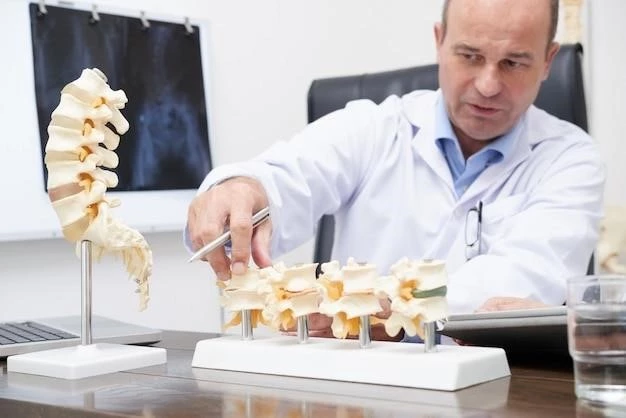Introduction to Short Rib-Polydactyly Syndrome‚ Majewski Type
Short rib-polydactyly syndromes (SRPSs) encompass a diverse set of lethal autosomal recessive osteochondrodysplasias. NEK1 mutations contribute to the pathogenesis of Majewski type SRPS.
Short rib-polydactyly syndromes (SRPS) comprise a group of autosomal recessive osteochondrodysplasias with distinct subtypes. The Majewski type‚ characterized by multifaceted skeletal abnormalities and polydactyly‚ falls under the SRPS spectrum. Understanding the genetic basis and clinical manifestations of SRPS is crucial for accurate diagnosis and management strategies.
Overview of Short Rib-Polydactyly Syndromes
Short rib-polydactyly syndromes (SRPS) are a diverse group of autosomal recessive osteochondrodysplasias with distinct recognizable subtypes‚ including Majewski type. These syndromes present with a range of skeletal anomalies‚ including polydactyly and shortened ribs‚ necessitating a comprehensive approach to genetic analysis and clinical management.
Role of NEK1 Gene Mutations
NEK1 gene mutations play a crucial role in the pathogenesis of Short Rib-Polydactyly Syndrome‚ Majewski Type. These mutations are identified as underlying causes of this lethal osteochondrodysplasia‚ highlighting the significance of genetic analysis in understanding and managing this syndrome.
Clinical Presentation and Diagnostic Criteria
Clinical manifestations of Short Rib-Polydactyly Syndrome‚ Majewski Type involve skeletal abnormalities‚ polydactyly‚ and thoracic abnormalities. Diagnosis relies on recognizing distinctive features and genetic testing for accurate confirmation.
Features of Majewski Polydactyly Syndrome
Majewski Polydactyly Syndrome is characterized by a range of skeletal abnormalities‚ polydactyly‚ and thoracic defects. The syndrome is distinguished by its unique clinical presentation and diagnostic criteria‚ which make it a notable variant within the Short Rib-Polydactyly Syndrome spectrum.
The Short Rib-Polydactyly Syndrome‚ Majewski type‚ is a rare autosomal recessive disorder with distinct skeletal abnormalities and polydactyly. Its incidence is estimated to be very low‚ affecting a small proportion of the population globally.
Epidemiology and Incidence
The Short Rib-Polydactyly Syndrome‚ Majewski type‚ is a rare autosomal recessive disorder with distinctive skeletal abnormalities and polydactyly. The syndrome has a very low estimated incidence‚ affecting a small percentage of the global population.
Differentiating Types of Short Rib-Polydactyly Syndrome
Short Rib-Polydactyly Syndrome encompasses various subtypes‚ including the Majewski type‚ each characterized by distinct skeletal abnormalities and polydactyly presentations‚ aiding in the classification and diagnosis of these rare disorders.
Short Rib-Polydactyly Syndromes encompass various subtypes with distinctive features‚ including the Majewski type‚ characterized by specific skeletal abnormalities and polydactyly presentations. Understanding the classification of these subtypes is essential for accurate diagnosis and management.
Radiological Findings and Imaging Characteristics
Radiological examination of Short Rib-Polydactyly Syndrome‚ Majewski Type reveals specific skeletal abnormalities and polydactyly features. Imaging plays a crucial role in the diagnosis and management of this rare osteochondrodysplasia.
Classification and Subtypes
Short Rib-Polydactyly Syndrome‚ Majewski type‚ belongs to a group of lethal skeletal dysplasias characterized by hypoplastic thorax‚ short ribs‚ short limbs‚ and polydactyly. This classification is vital for accurate diagnosis and understanding of the distinct subtypes of this rare disorder.
Prognosis and Management Strategies
The prognosis for patients with Short Rib-Polydactyly Syndrome‚ Majewski Type‚ is generally poor due to the severity of skeletal abnormalities and associated complications. Management revolves around supportive care‚ surgical interventions for specific anomalies‚ and genetic counseling for affected families.
Challenges in Treating Short Rib-Polydactyly Syndrome
Managing Short Rib-Polydactyly Syndrome‚ Majewski Type poses significant challenges due to the complexity of skeletal abnormalities‚ polydactyly‚ and associated complications. Treatment approaches require a multidisciplinary team to address the diverse medical needs of affected individuals‚ considering the rarity and severity of the condition.

Differential Diagnosis and Associated Syndromes
Short Rib-Polydactyly Syndrome‚ Majewski Type‚ requires differential diagnosis from related conditions such as Jeune Syndrome and Ellis Van Creveld Syndrome‚ which present similar but distinct features. Understanding the distinguishing factors is essential for accurate diagnosis and appropriate management strategies.
Distinguishing Majewski Type SRPS from Similar Conditions
Recognizing unique characteristics such as skeletal abnormalities‚ polydactyly‚ and thoracic findings is crucial for differentiating Short Rib-Polydactyly Syndrome‚ Majewski Type‚ from related conditions like Jeune Syndrome and Ellis Van Creveld Syndrome. Accurate differentiation is essential for appropriate diagnosis and tailored management strategies.
Ongoing research focuses on identifying mutations in the NEK1 gene as a key factor in the pathogenesis of Short Rib-Polydactyly Syndrome‚ Majewski type. Understanding these genetic mechanisms is crucial for the development of targeted treatments and management strategies.
Research and Recent Advances
Advancements in genetic studies have elucidated the role of NEK1 mutations in Short Rib-Polydactyly Syndrome‚ Majewski Type. These findings have opened avenues for targeted treatment innovations and personalized management strategies‚ offering hope for improved outcomes in individuals affected by this rare disorder.
Impact on Families and Genetic Counseling
The impact of Short Rib-Polydactyly Syndrome‚ Majewski type‚ on families is profound‚ requiring comprehensive genetic counseling to address inheritance patterns and support decision-making. Families affected by this rare disorder face complex emotional and practical challenges‚ emphasizing the importance of tailored counseling strategies for optimal family support and guidance.
Counseling Strategies for Families Affected by SRPS
Families impacted by Short Rib-Polydactyly Syndrome‚ Majewski type‚ benefit from tailored genetic counseling to comprehend risks‚ make informed decisions‚ and cope with the emotional challenges associated with a diagnosis. Professional guidance plays a crucial role in supporting families throughout their journey with this rare genetic condition.
Efficient prenatal diagnosis and fetal screening protocols are essential for identifying Short Rib-Polydactyly Syndrome‚ Majewski type‚ allowing for early detection and appropriate management strategies. Genetic counseling and comprehensive imaging techniques play a critical role in providing accurate information to families and healthcare providers.
Prenatal Diagnosis and Fetal Screening
Early detection through efficient prenatal diagnosis and fetal screening is crucial in identifying Short Rib-Polydactyly Syndrome‚ Majewski type. This allows for timely interventions and appropriate counseling to support affected families.
Case studies provide valuable insights into the clinical manifestations and diagnostic challenges of Short Rib-Polydactyly Syndrome‚ Majewski type‚ enhancing our understanding of this rare genetic disorder and guiding personalized management strategies.
Case Studies and Clinical Reports
An in-depth analysis of specific Short Rib-Polydactyly Syndrome‚ Majewski type cases provides crucial insights into the distinctive clinical manifestations and challenges associated with this rare genetic disorder. By examining individual cases in detail‚ healthcare professionals can enhance their understanding of the disease and tailor management strategies to meet the unique needs of affected individuals.
Short Rib-Polydactyly Syndrome‚ Majewski type‚ is characterized by a range of anatomical abnormalities impacting skeletal structure‚ limbs‚ and other systems. The systemic effects of this condition necessitate comprehensive assessment and management strategies to address the multisystem manifestations of the syndrome effectively.
Anatomical Abnormalities and Systemic Effects
Short Rib-Polydactyly Syndrome‚ Majewski type‚ presents a wide range of anatomical abnormalities that impact skeletal structures‚ limbs‚ and various systems within the body. Comprehensive understanding of these multisystemic manifestations is essential for the accurate diagnosis and effective management of this rare genetic disorder‚ encompassing skeletal anomalies‚ limb abnormalities‚ and potential impacts on vital body systems.
Surgical interventions play a crucial role in correcting skeletal anomalies and limb deformities present in Short Rib-Polydactyly Syndrome‚ Majewski type. Implementing appropriate therapeutic options improves the quality of life for affected individuals and may include corrective surgeries to address specific anatomical abnormalities.

Surgical Interventions and Therapeutic Options
Corrective surgeries in Short Rib-Polydactyly Syndrome‚ Majewski type‚ are essential to address skeletal anomalies‚ limb deformities‚ and other associated complications. Surgical interventions aim to enhance the quality of life for affected individuals by improving anatomical structure and function‚ minimizing potential health risks‚ and optimizing overall well-being.
Conclusion and Future Directions
In conclusion‚ Short Rib-Polydactyly Syndrome‚ Majewski type‚ presents as a rare and complex genetic disorder with significant skeletal anomalies and multisystemic effects. Advancements in genetic studies and surgical interventions offer hope for improved diagnosis and management strategies. Future directions in research aim to further understand the underlying genetic mechanisms and potential targeted treatments to enhance the quality of life for individuals affected by this condition.
Promising Areas of Research and Treatment Development for SRPS
Promising areas of research in Short Rib-Polydactyly Syndrome‚ Majewski type‚ focus on advancing genetic studies to enhance diagnostic accuracy and exploring innovative treatment developments. These areas aim to improve understanding of the condition’s pathogenesis and to facilitate the development of targeted therapies for better management and outcomes in affected individuals.
